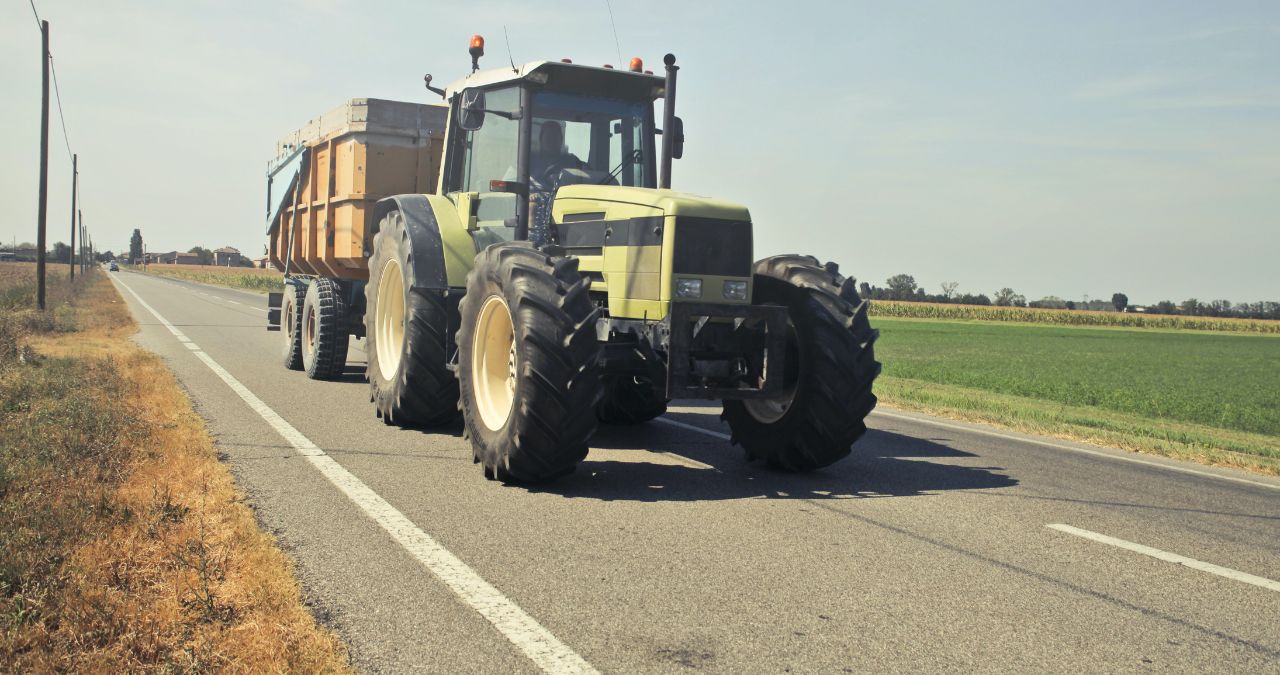What Transportation Do Farmers Use?

Transportation is an essential part of the agriculture industry, ensuring that agricultural goods reach consumers efficiently and reliably. Farmers use various modes of transportation to move their products from farms to markets and contribute to the overall supply chain. In the United States, the Department of Agriculture and the Agricultural Marketing Service play significant roles in regulating and facilitating this transportation system.
What Transportation Do Farmers Use?
Tractors And Farm Vehicles
Tractors are often dubbed the workhorses of the agriculture industry. These machines are considered the cornerstone of modern farming, and they’re used for a wide range of tasks, from plowing to planting, and from cultivating to harvesting. Farmers also utilize a variety of vehicles to transport equipment, supplies, produce, and even livestock, such as trucks and utility vehicles.
Truck and rail are two primary modes of transport farmers often rely on to move their agricultural goods. Trucks are highly versatile and can navigate diverse terrains, making them ideal for transporting perishable items and crops over short to medium distances. Rail transport is vital for moving larger quantities of goods across longer distances, providing an efficient means to connect farms to markets.
All-Terrain Vehicles (ATVs)
Compact and versatile machines, farmers often use ATVs for a variety of tasks, such as checking livestock, spraying crops, and managing their land. ATVs are beneficial on hilly or rugged terrains where the use of larger vehicles is virtually impossible.
Aircraft
Larger agricultural operations utilize aircraft for a variety of tasks. For instance, farmers may employ crop dusters to seed and fertilize land from the sky and apply pest control products. These specialized aircraft for farming are equipped with specific gear to swiftly spread materials over extensive areas of land.
Railroads
Some farms have access to railroads, making rail transport a reliable and efficient way to move large amounts of agricultural products. Considerable amounts of vegetables, grains, and other types of crops can be transported across long distances using freight trains.
Bikes
Farmers who operate smaller-scale operations – particularly in developing countries – also rely on bicycles to transport goods and products. Bicycles are a cost-effective and environmentally friendly transportation system. Additionally, they’re well-suited for traversing narrow roads and paths. Trailers can be attached to the backs of bicycles, allowing farmers to transport additional loads.
Water Transportation
Farms that are located near waterways, such as rivers, and lakes, or even near larger bodies of water, such as bays and oceans, utilize water-based transportation. Boats, barges, ferries, and other water vessels can be used to ship large amounts of various farm-related goods, such as crops, livestock, and equipment from one location to another.
What Transportation Do Farmers Use?
Farmers utilize various forms of transportation to meet their unique needs – and the unique needs of the communities they serve. From more traditional transportation, such as animal-powered vehicles, to modern technologies, like aircraft and water-based transport, several different modes of transportation can be used to ensure the efficiency of farming practices.
Efficient transport is important in ensuring that agricultural products reach their destinations promptly and in good condition. The transportation industry works hand in hand with the agriculture industry to create a robust supply chain, allowing farmers to focus on production while ensuring their products reach consumers in a timely manner. By optimizing transportation services, the agriculture industry can thrive, meeting the demands of both domestic and international markets.
Cannonball Express Transportation
Cannonball Express Shipping Company has been providing top-of-the-line service at a reasonable rate. Based in Omaha, Nebraska, we provide nationwide refrigerated LTL services, as well as, local delivery services. Contact us today!
Nationwide Shipping Company Services:
- Refrigerated LTL deliveries in the lower 48 states
- Refrigerated Cross dock
Local Shipping Company Services:
-
- Redelivery Services
- Truckload & LTL Capabilities
- PUP
- Cross dock
- Transload
- Warehouse and Distribution capabilities from multiple Omaha Locations
Nebraska Warehouse One-Stop-Shop | TechnologyEnabled 3PL Value-Added Services Warehouse | Freight Broker | Logistics
Nebraska Warehouse doesn’t just help to facilitate your shipments, but we are truly a one-stop-shop solutions provider. Our services include:
Latest News
The latest information about our Omaha storage warehouse services
